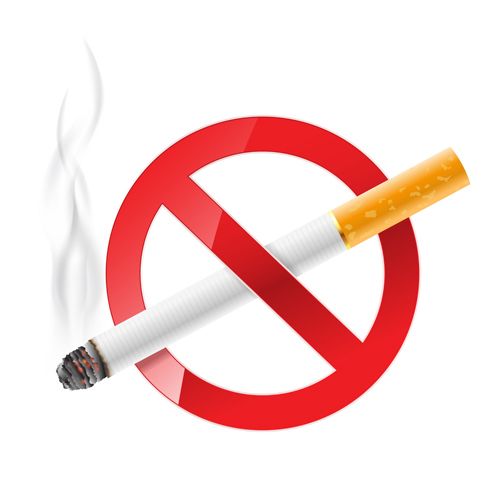CIGARETTE BREAK
No one really needs to be lectured about the dangers of smoking at this point. What we can do is give you a clear path to quitting.
-
The minute you decide to quit, run with it.
Planning to quit after your current pack is finished makes your remaining cigarettes seam too precious, says Dicey, who has personally helped 30,000 smokers quit and gave up a five-pack-a-day habit himself. (his techniques worked for Ashton Kutcher and Anjelica Huston, too.)
-
Check off smoke-free days on the calendar.
Quitting smoking is a time game because “it takes nicotine just a few days to leave your body,” says Centurion. When you know that, you’re less likely to regress. “If you can get through the first five days, you’re in a much better shape.”
-
Focus on the freedom.
"Talking about how much you’ll miss smoking is quite negative – you’re putting yourself in the position of feeling deprived,” says Dicey. Instead, focus on the benefits: “I might be able to actually run a mile.” Or try putting Post-it notes around your home with messages like “I’m a nonsmoker” on them, a method that helped one Allure editor give up smoking.
-
Distract yourself from cravings.
Most last five to ten minutes, so read a magazine of organize your medicine cabinet until the longest ten minutes of your life pass. If that doesn’t do it, try holding your breath when you want a cigarette, as one of our editors did. It’ll remind you how much smoking is hurting your lungs – and the rest of your body. “Smoking puts incredible stress on your body, including starving your brain of oxygen,” adds Dicey.
-
Get a new routine
- anything that takes you out of the places you usually smoke will help you quit. If you smoke when you drive, take a different route. If you smoke with coworkers, don’t join them outside. Go for a walk with a nonsmoking friend instead.
-
Satisfy the craving.
Nicotine patches, lozenges, and nasal sprays really can help because they lessen withdrawal symptoms, like anxiety and irritability (all three are endorsed by the National Cancer Institute and backed by studies). Prescription Chantix reduces cravings and the pleasure of smoking. “It’s very effective, but people fear the possible side effects, like headaches and nausea,’ says Centurion. “But you know what’s definitely bad for you? Smoking.”
-
Be OK with failure.
“Most people relapse more than once. But the things you didn’t know, you learn. If something didn’t work, there’s another option,” says Centurion. A behavioral psychologist can help you create a plan.

